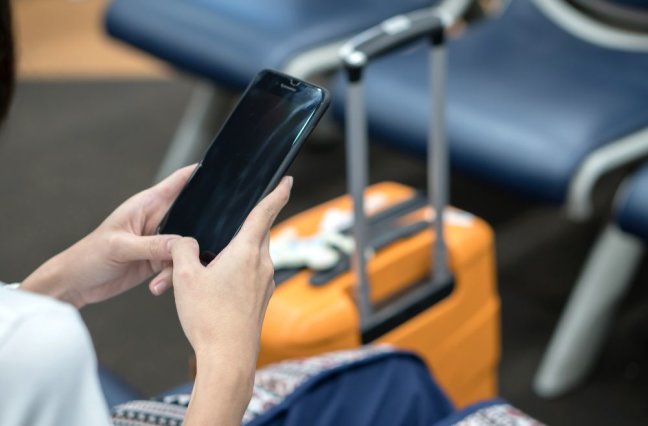Do you need a call recorder or a recording engine?
Which came first, the call recorder or the recording engine? Honestly, it doesn't matter as they serve to very different use cases. Read more about ea...
CallMiner Outreach is here! |Learn about the future of CX

Solutions
Products
Customers
Solutions
Products
Customers
Resources
Company
The Team at CallMiner
June 20, 2019


According to a survey by Sabre published in Forbes of more than 100 airline executives, 51% said lack of technology stops them from improving customer experience. Moreover, Accenture said about the airline industry, “Both traditional and low-cost carriers need new strategies to differentiate themselves from competitors and digital (including real-time analytics) can be a key difference in a hyper-competitive market”. With the travel season heating up and millions taking to the skies for travel this summer, customer service will be on the watch. And airlines will require real-time solutions to solve customer problems quickly be it on the phone, web or social media.
In a recent case study and webinar, Praxidia discussed their success with uncovering new insights and finding improvement opportunities for a major airline, resulting in $500,000 in annual savings. Praxidia Knowledge Services, a consumer consultancy subsidiary of the Teleperformance Group, whose through its advanced use of speech and text analytics, deliver managed analytics and consulting to improve ROI for its clients. Their challenge was that although many of the airline’s processes were already automated, their quality assurance was not. By utilizing Eureka Analyze, Praxidia significantly improved the airline’s contact center operation efficiency and provided them with valuable unseen insight.
The airline’s initial method of manual quality assurance did not provide the necessary insight into near-real-time-analytics. Visibility into what customers were saying was clouded by only sampling 2% or 3% of randomly sampled calls. Trying to define trends and potential areas for improvement from such a small pool can cause the impacts of calculated decisions to be severely limited. Praxidia was determined to increase quality assurance on voice and web chat as well as stronger self-service effectiveness across channels. They realized these objectives were far from being met with the current manual quality assurance processes the airline had in place.
“When we saw the issues that came up from a random sampling of about 3% of calls, and the top issues from applying 100% call volume analysis, it was like looking at two different companies,” said Steve Ruszczk, executive vice president of professional services and service line head for interaction analytics at Praxidia.
Eureka Analyze allowed Praxidia to automatically monitor, score and tag voice and web chats. Automated indexing allowed for quickly identifying specific context and pinpoint language within the call recording and transcripts. Before long, it became evident the information the airline was lacking from overlooking the other 97% of calls that came into its contact centers.
Calls are tagged on a variety of CX categories that allow for enhanced root cause analytics:
This small manual checked sample size of calls also led to the unintentional magnification of small issues, ultimately wasting the airline’s time and money. Wheelchair-related complaints were marked as a significant enough issue to warrant reviewing wheelchair operations. This process ended up wielding inconclusive results for the company. After implementation, Praxidia found that fewer than one tenth of one % (<0.01%) of callers had wheelchair-related complaints. If the airline had this information sooner, the airline could have saved valuable resources pursuing relevant problems to their business operations.
Automated QA provided actual root cause analysis that lead to insights that they put into action. 100% of interactions analyzed revealed the airline to change its IVR options and add informative text on its website, resulting in a 50% reduction in calls to contact centers. This root cause analysis covered not only over contact centers, but on the web and in business operations as well.
“The truth is the contact center is a great source of brand information and customer experience insights,” said Ruszczk. “This is an opportunity to build brand protection and advantage, because it’s where you learn what customers are saying about your company and your brand. Without interaction analytics, most of that insight flies right out the window without ever being captured and analyzed.”
The newly implemented automated QA process now enables supervisors to have a precise coaching plan towards agents. Automated QA means managers can quickly identify specific contacts and pinpoint language (e.g. script compliance, regulatory compliance, complaints, closing language) within the call recording and transcript. In addition, analytics-based reporting shows baseline performance levels, trends and identifies agents that need additional training. Figuring out what agents need to do better was taken out of the supervisors’ responsibilities, allowing them an average of 12 hours more a month to apply to coaching agents. Now first call resolution (FCR) is up and call transfers are down, providing indicators that the increased coaching has added value to call center operations.
Praxidia has maximized the airline’s analytics and customer journey. Based on recommendation, the airline added live chat web support to its customer service offering. Now it is the airline’s most used channel, eliminating 155,000 live agent interactions by keeping the customer in their preferred self-service web channel, as well as reducing overall call volume by 5%. The ability to have information gathered from 100% of the calls as opposed to just 3% allowed for more impactful decisions and results. Valuable time was saved, and the airline was able to achieve $500,000 in savings.
By learning what all your customers are saying instead of just a few, there is tremendous opportunity to build brand protection and advantage in your industry. To learn more about this specific Praxidia case, and maximizing your results from CallMiner Eureka, read the case study or watch the webinar discussion with Steve:
CallMiner is the global leader in AI-powered conversation intelligence to improve customer experience (CX). CallMiner delivers the industry’s most comprehensive platform to analyze omnichannel customer interactions at scale, combining deep domain expertise with cutting edge AI analytics and machine learning. By uncovering better intelligence, CallMiner enables companies to identify areas of opportunity to drive better experiences, ultimately leading to business improvement, growth and transformational change. CallMiner is trusted by the world’s leading organizations across all major verticals including technology, media and telecom (TMT), retail, manufacturing, financial services, healthcare, and travel and hospitality.